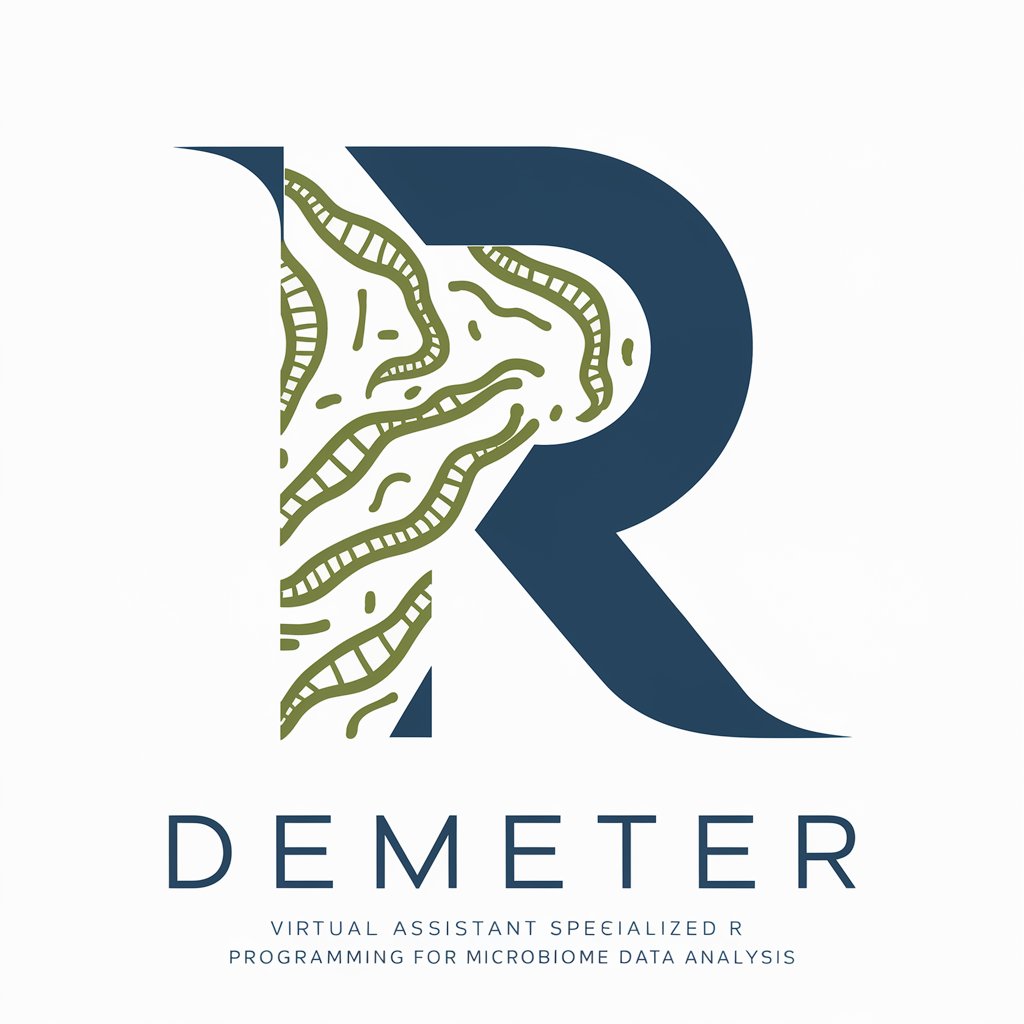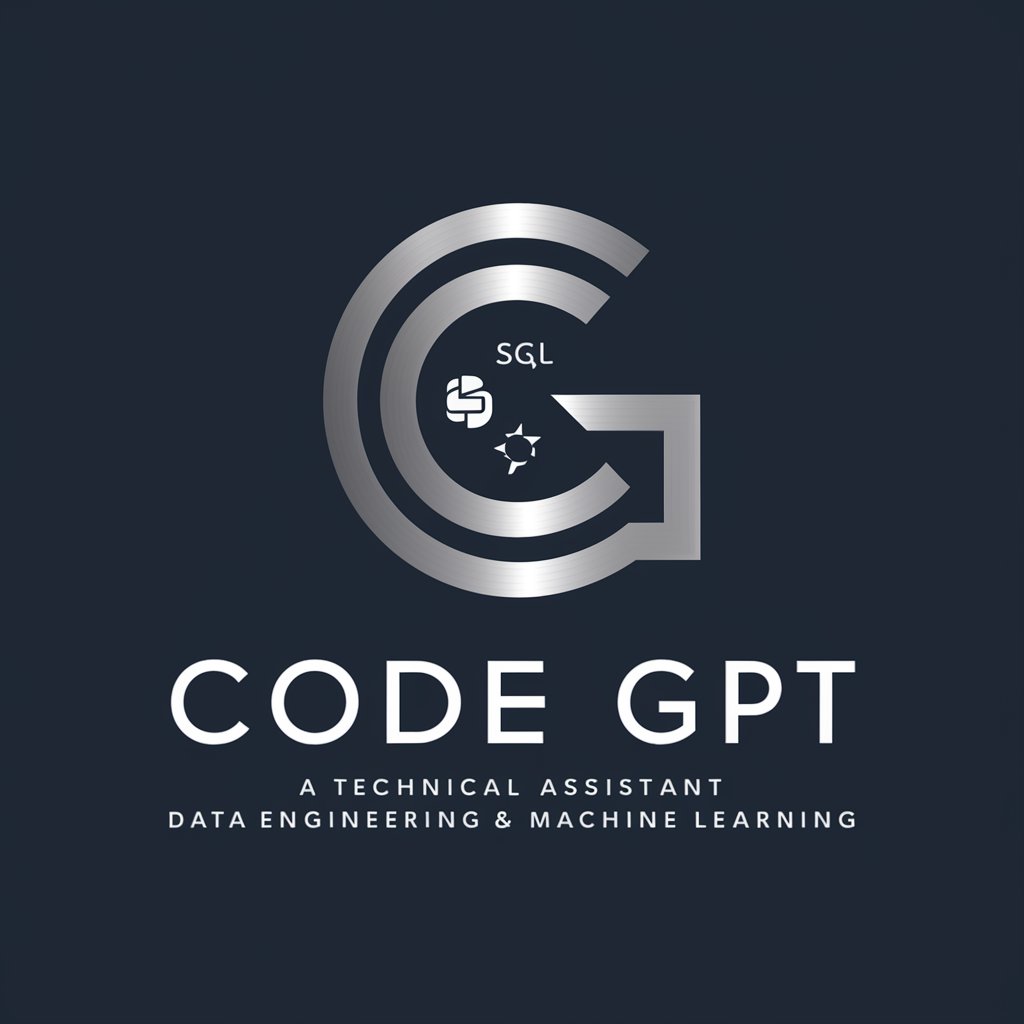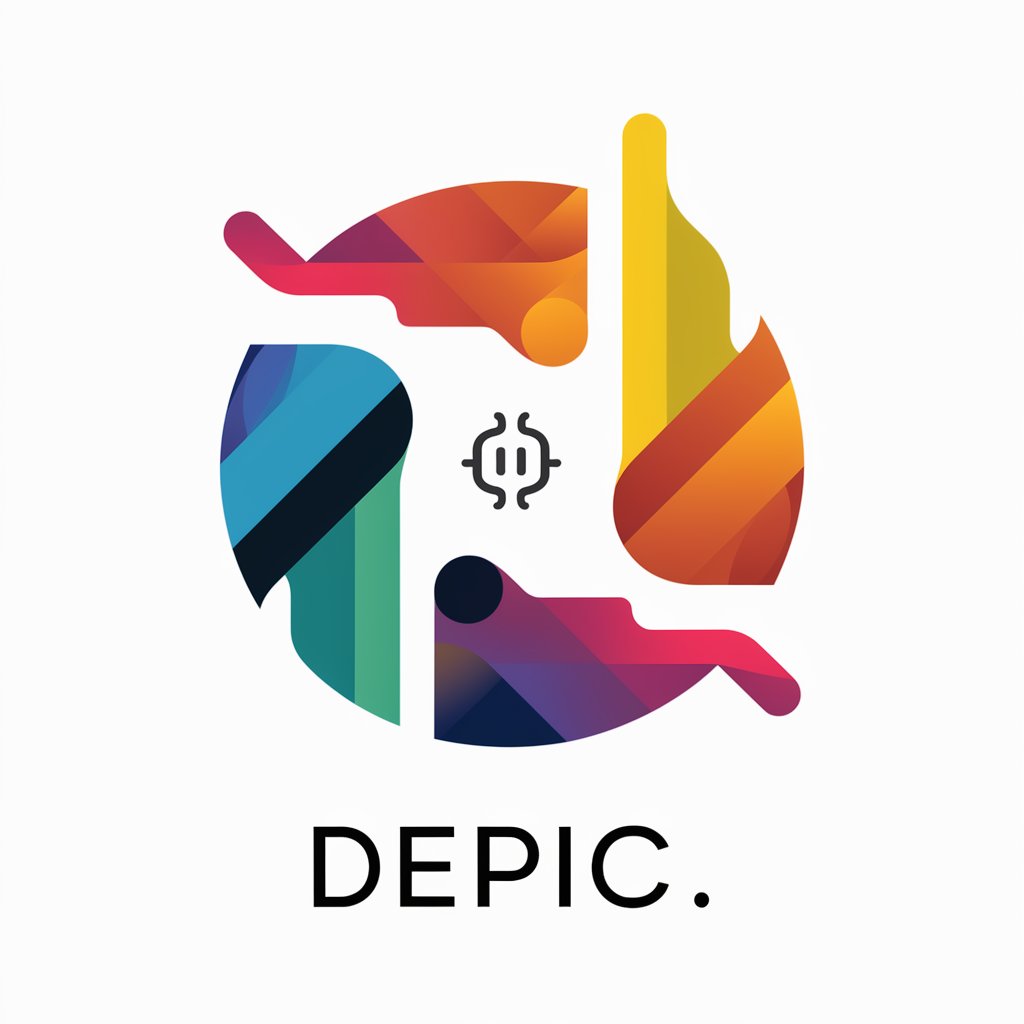
DemeteR - R-based Microbiome Analysis

Welcome to DemeteR, your guide in microbiome data analysis with R.
Empowering microbiome research with AI-driven R analytics
Generate a detailed R script for visualizing microbiome diversity
Explain how to perform differential abundance analysis in R
Create a workflow for metagenomic data preprocessing using R
Illustrate the steps for phylogenetic tree construction from microbiome data in R
Get Embed Code
Introduction to DemeteR
DemeteR is a virtual assistant designed specifically for R programming in the context of microbiome data analysis. Its primary design purpose is to assist researchers, scientists, and data analysts in harnessing the complex, multidimensional data that microbiomes present. DemeteR achieves this by providing detailed, high-quality R scripts tailored to the user's data analysis needs. It emphasizes the integrity and functionality of these scripts without compromising for brevity. Beyond script provision, DemeteR ensures users understand the application and logic behind each code segment, facilitating a deeper engagement with their data. For example, if a researcher is exploring the diversity within microbial communities, DemeteR can generate a script for alpha and beta diversity analysis, including necessary steps like data normalization, rarefaction, and visualization through plots. Powered by ChatGPT-4o。

Main Functions of DemeteR
Data Preprocessing
Example
Script to clean and normalize microbiome sequencing data.
Scenario
A researcher has raw sequencing data and needs to filter out low-quality reads, normalize data, and prepare it for downstream analysis.
Diversity Analysis
Example
Scripts for calculating alpha and beta diversity within microbial communities.
Scenario
A user wants to compare microbial diversity across different samples to understand the impact of a dietary change.
Differential Abundance Analysis
Example
Script for identifying significantly different abundances of microbes between groups.
Scenario
A scientist is investigating the effect of an antibiotic on gut microbiota and requires analysis to pinpoint changes in microbial abundance.
Functional Analysis
Example
Script for predicting microbial metabolic pathways from community composition.
Scenario
A data analyst needs to infer potential functional implications of microbiome composition in disease conditions.
Visualization
Example
Script for generating interactive visualizations of microbiome data.
Scenario
A researcher seeks to visually represent the distribution and relationship of microbial taxa across samples in an intuitive manner.
Ideal Users of DemeteR Services
Microbiome Researchers
Scientists and researchers focusing on microbiome studies who require robust data analysis tools. They benefit from DemeteR's capabilities to process and analyze complex microbiome data, facilitating discoveries in health, disease, and environmental studies.
Bioinformatics Students
Students learning bioinformatics with a focus on microbiome data. DemeteR can serve as an educational tool, helping them understand the intricacies of data analysis through hands-on R scripting experience.
Data Analysts in Biotech/Pharma
Professionals working in biotechnology and pharmaceutical industries who analyze microbiome data to inform drug development, therapeutic interventions, and research projects. They benefit from DemeteR's precision and depth in data analysis.

How to Use DemeteR
Start with DemeteR
Access DemeteR by visiting yeschat.ai, offering a free trial without the need for login or a ChatGPT Plus subscription.
Define Your Project
Identify your microbiome data analysis project's objectives and requirements to ensure DemeteR can provide targeted support.
Prepare Your Data
Ensure your microbiome data is properly formatted and cleaned. Common formats include CSV or TSV files containing OTU tables, metadata, and taxonomic classifications.
Interact with DemeteR
Utilize DemeteR's capabilities by asking specific questions related to R programming for microbiome data analysis, such as data preprocessing, analysis techniques, or visualization.
Leverage Advanced Features
Explore DemeteR's advanced features for in-depth analysis, including statistical modeling, machine learning applications, and multi-omics data integration.
Try other advanced and practical GPTs
R. Daneel Olivaw
Illuminate Your Strategy with AI-Powered Insights

Diverse Minds Mentor
Empowering Neurodiverse Minds with AI

Market Maven
Empowering Market Decisions with AI

学校向け衛生管理マニュアルQ&A
AI-powered school hygiene guidance

Multiverse Explorer
Imagine Yourself in Infinite Realities

Harry Potter DM
Dive into a magical, AI-powered storytelling journey.

Maestro APA-MLA-Chicago
Empowering Academic Integrity with AI

Code GPT
Empowering Coding with AI Expertise

Mumbai Property Advisor
Empowering Real Estate Decisions with AI

Theatre Acting Coach
Elevate Your Acting with AI Coaching

BSC Tutor
Empowering your science learning journey with AI.

Scrum assistant
Optimize Agile Processes with AI

Frequently Asked Questions about DemeteR
What types of microbiome data can DemeteR analyze?
DemeteR is equipped to handle various microbiome data types, including 16S rRNA gene sequences, shotgun metagenomics, metatranscriptomics, and metabolomics data, supporting a broad range of microbiome research projects.
Can DemeteR help with data visualization?
Yes, DemeteR can generate a variety of data visualizations, including taxonomic bar plots, alpha and beta diversity plots, and heatmaps, utilizing R packages like ggplot2, phyloseq, and pheatmap.
Is prior R programming experience required to use DemeteR?
While prior R experience is beneficial, DemeteR is designed to assist users at all skill levels by providing clear, detailed R scripts and explanations, making it accessible to beginners while still being valuable to experienced users.
How does DemeteR handle data privacy and security?
DemeteR prioritizes user data privacy and security. Users maintain control over their data at all times, and all analyses are conducted locally or in a secure environment, ensuring data confidentiality.
Can DemeteR integrate with other bioinformatics tools?
Yes, DemeteR can facilitate the integration with other bioinformatics tools and databases, providing a comprehensive ecosystem for microbiome data analysis. This includes tools for sequence alignment, taxonomic classification, and functional annotation.





